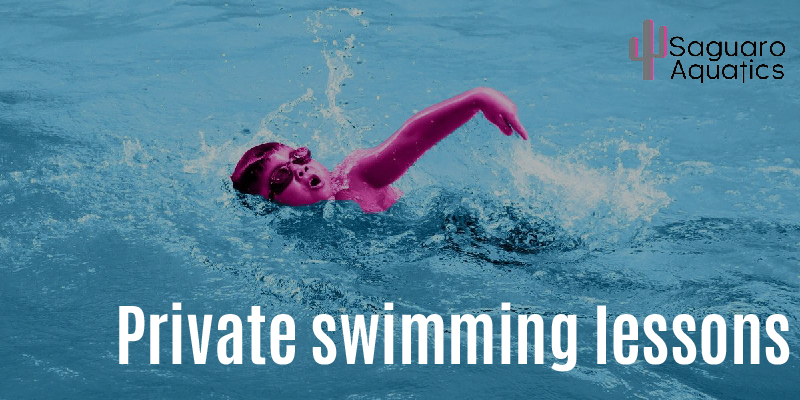Swimming at private swimming lessons near me may help you lose weight and tone your muscles while also improving our most vital muscle, our heart. Swimming is indeed an aerobic workout that improves the heart by increasing its size and effectiveness in pumping blood.
Swimming for thirty minutes per day can lower the risk of ischemic heart disease in men/women by 30-40%. It also lowers blood pressure and boosts HDL (fine cholesterol) levels. Swimming can also help to maintain the layer of cells lining the arteries flexible & in excellent condition. Before looking for private swimming lessons near me, do follow these points on how swimming helps with proper blood circulation.
Swimming is the best cardiovascular workout there is
Any type of cardiovascular exercise—activities that get the heart pumping & your sweat flowing—can help grow and strengthen your heart muscle. Swimming, in contrast, is an excellent cardiovascular workout.
The heart is one component of the intricate and hardworking circulatory system, which also comprises the extensive network of arteries, veins & other blood vessels that flow throughout your body to deliver oxygenated blood to every cell.
As per the Texas Heart Institute’s website, the system is so vast that if every vessel in the network were put end-to-end, the resulting vessel “rope” would stretch for 60,000 miles & wrap around the world more than twice.
That’s a lot of blood-pumping real estate jammed into your body, so your heart has to work extra hard every day to keep oxygen, nutrients, blood, and wastes created by cells flowing.
Exercise may assist enhance this process, and it appears that swimming is one of the finest types of exercise for supporting your heart & circulatory system. But some people are too shy to swim around people, for them private swimming lessons near me will be the best option.
Reduced Heart Rate
Your blood pressure lowers naturally and quickly as part of a complicated series of physiological reactions to submersion into the water cooler than the body temperature, a process known as the mammalian diving reflex.
When you 1st enter the water, you may get a sense of serenity and relief from your fears. You are not alone, and it is not all in your brain. That’s the mammalian diving relaxation at work. It reduces your heart rate to save oxygen if you fall through ice on a cold winter day and need to live.
Swimming can culminate in a long-term, lower heart rate through the benefits of muscle growth, in addition to the in-the-moment impact that occurs even in 83-degree pool water. Private swimming lessons near me might provide aerobically and muscle growth without the significant wear & strain on your body that a ground-based workout like jogging would.
Cardiovascular activity, like building a bicep via repeated and progressive increases in lifting repetitions, can enhance the strength and size of the heart muscle.
Over time, your heart may get so robust that it no longer has to work just as hard to supply the fundamental demands of your circulatory system. As a result, it does not need to pump as frequently, reducing pressure on the heart over time.
Lowered Blood Pressure
Hirofumi Tanaka, a scientist at the College of Texas, has indeed been investigating the impact of swimming on people’s health for several decades. Several studies have revealed a clear link between how frequently adults swim & the condition of their hearts.
Two studies in specific found that people who began swimming improved their blood pressure significantly. A 2012 research of 43 older men & women (average age 60) discovered that after starting to swim a few times per week, their systolic pressure (the top number) had decreased.
At the start of the trial, the average systolic pressure was 131 millimeters of mercury. That average had reduced to 122 after 13 weeks. Swimming resulted in a considerable decline in blood pressure compared to the baseline group, which observed no change throughout the research.
Swimming also decreases blood pressure, according to smaller research published in 1997. Private swimming lessons near me are awesome for those who want to take personalized swimming classes.
Improved Circulation
Exercise improves the efficiency of your entire body, not just your heart. Your circulation improves as the entire 60,000-mile-long chain of vessels becomes more efficient.
Improved circulation implies that your blood can reach all parts of the body where it is needed to give oxygen and eliminate waste. A good circulatory system lowers your chance of embolism, a blockage produced by a blood clot that grows in a vein in your leg, breaks away, and goes to the lungs, where it can be fatal.
Improved circulation could also lower your risk of stroke as well as other circulatory disorders, as well as assist your body in moving nutrients to cells in need of repair. The circulatory system is the body’s interstate highway system, & it must be in excellent working order to carry all that traffic. Private swimming lessons near me might assist in filling a few of the metaphorical potholes that really can form in your system as you age.
Not only does swimming help circulatory health, but so does the water itself. The pressure from the water around the skin can also assist your body in moving blood to where it is required. Consider swimming as just a therapy if you have edema and swelling in your lower limbs and poor circulation in the feet & toes as a result of diabetes to enhance your body’s capacity to pass that extra fluid along and encourage increased blood flow to extremities.
Stress Reduction
Do you go to the pool when you’re stressed? You are, however, not alone.
A poll of over 1,250 swimmers aged 18 to 45 from across the world provided some data on how soothing swimming can be at Private swimming lessons near me—even while you’re working out hard.
- 74% of respondents stated swimming relieves stress and tension.
- 68% of respondents stated being inside the water makes them feel better about themselves.
- Swimming helps 70 percent of responders feel psychologically rejuvenated.
Swimming’s capacity to help you handle stress is critical for maintaining excellent heart health and avoiding stress, which is a key risk factor for heart attack.
Relaxation of the Muscles
Because of the temperature of the water, blood vessels dilate, preventing inadvertent injury to muscles & joints during exercising. Muscle soreness is also generated by the accumulation of lactic acid within them. However, as the blood vessels widen when working out, the discomfort is reduced.
The natural stream created by the flow of water functions as a massage treatment, improving blood circulation and soothing tight muscles and joints. Water physical therapists utilize aquatic gloves & water paddles to target certain areas of your body and work out the problem.
Conclusion:
If you’re a novice or returning to swimming, begin with five to ten minutes of calm lap swimming. You’ll be able to swim for longer amounts of time as you become acclimated to the activity & your strokes, kicks, & breathing become more efficient. Change up your strokes – freestyle, butterfly, backstroke, whatever you’re comfortable with. Aside from keeping your swimming program fresh, variation allows you to engage different muscles.
If you’re looking for a decent and efficient water physical therapy clinic near me, Saguaro Aquatics is the finest in the market. So, what are you holding out for? Contact our aquatic physiotherapy session professionals to reap the most benefits. Saguaro Aquatics’ physiotherapy team is passionate and well qualified. While celebrating our 17th year of providing unrivaled water physical treatment sessions and swimming lessons, we want to cover many more kilometers. If you wish to contact us or learn more about the services we provide, please phone -(520) 638-8040 or email -swim@saguaroaquatics.com.





